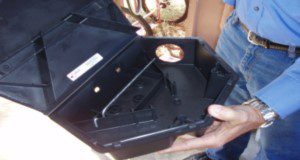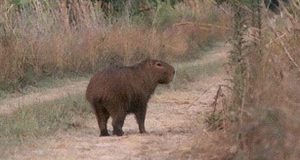Rodenticides are pesticides designed to kill rodents, primarily mice and rats. However, rodents are not the only species that can be poisoned by rodenticides. Practically any mammal, including humans, can suffer severe effects from unintentional exposure to rodenticides. Rodenticides vary widely in the hazard they present even though they are all designed to kill animals that are physiologically comparable to humans. This new 4-page publication of the UF/IFAS Pesticide Information Office addresses those hazards for rodenticides currently registered in Florida. Written by Frederick M. Fishel.
https://edis.ifas.ufl.edu/pi284
Tag: Rodents
Status of Capybaras (Hydrochoerus hydrochaeris Rodentia: Hydrochaeridae) and Potential for Establishment in Florida
Would you know what to do if you saw a two-foot-tall, 100-pound exotic rodent strolling through your neighborhood? It’s highly unlikely, but, depending on your location, not absolutely impossible. Capybaras, the world’s largest rodents, are native to South America but have been spotted in the state of Florida and may have potential to establish populations here. This 5-page fact sheet written by Brandon Parker, C. Jane Anderson, Christina Romagosa, Samantha Wisely, Daniel Pearson, John Seyjagat, and Katherine Ashley Sayler and published by the UF/IFAS Department of Wildlife Ecology and Conservation describes capybaras, explains how they got to Florida, and shows where the semiaquatic, herbivorous rodents have been sighted so far.
edis.ifas.ufl.edu/uw438
WEC362/UW307 The Florida Mouse
WEC-362, a 4-page illustrated fact sheet by Hannah H. Willingham, Emma V. Willcox, and William M. Giuliano, describes this brownish to tawny colored rodent that lives in fire-maintained upland habitats in Florida — identification, habitat, distribution, behavior, conservation status, and habitat management. Includes references. Published by the UF Department of Wildlife Ecology and Conservation, September 2009.
http://edis.ifas.ufl.edu/UW307

